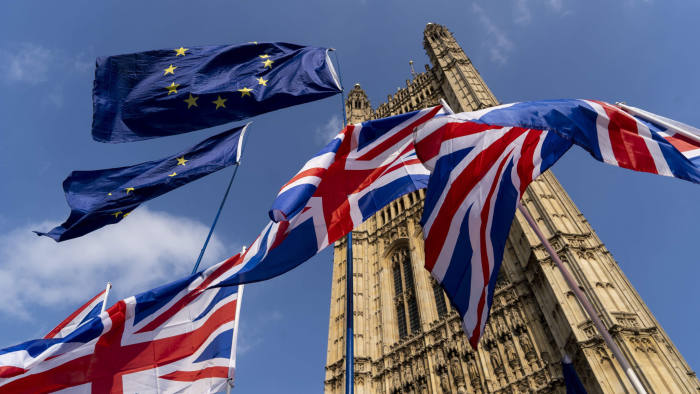Medical students in universities in Northern Ireland and Great Britain are currently unable to apply for internships in Irish hospitals as a result of Brexit.
This means that students from Ireland currently studying in Northern Ireland cannot apply for internships in the Irish healthcare sector.
The Journal reported that the Department of Health is hoping to rectify the issue by the end of the year.
Medical students must complete internships within their final year or after they graduate in order to be qualified to work in the Irish healthcare service.
According to the Health Service Executive (HSE) student internships must be completed in any of the following countries: Ireland, Norway, Denmark, Sweden, Italy, Lithuania, Luxembourg, Malta, Poland, Portugal, Slovenia, Iceland or the RCSI and UCD Malaysia Campus.
Northern Ireland and the United Kingdom were on the list last year, but have since been removed.
Speaking with the Journal one first-year student from Dublin studying in Ulster University said: “It will affect any students who may have graduated last year from Queen’s [University], but so may affect the applications of students applying from the Republic of Ireland.”
“I applied to study in Northern Ireland on the basis that I would have no issues in Ireland. They need to get that changed fast.”
The Department of Health told the Journal that “officials from the Department have been engaging with the Medical Council to establish the required changes to the Act to revert to the pre-Brexit position”.
“Significant progress has been made and the Minister [for Health Stephen Donnelly] will soon be seeking Government approval to draft the legislation necessary to amend the Medical Practitioners Act. It is expected that this will be enacted later this year.”
An EU directive on professional qualifications allowed EU and UK citizens to have professional qualifications – including health qualifications – mutually recognised pre-Brexit. Qualifications are only recognised by relevant authorities before 31st December, 2020.
In June last year Cambridge University announced a unit in Ireland to continue clinical trials research in the EU despite Brexit.
Speaking with the Irish Independent head of the Cambridge’s research office, Peter Hedges, confirmed the establishment of the unit which is called the University of Cambridge Services Europe.“The university is very active in the field of clinical trials research and the EU clinical trials directive requires that an EU legal entity has to be responsible for certain functions in the legal governance of trials.”
“The university has established the new subsidiary in Ireland in expectation that we may require an EU legal entity for this purpose, given the UK will be continuing to be an active participant in the Horizon Europe research programme”, Hedges added.
Brexit has led to the end of the Erasmus study abroad scheme in the UK. Instead, the Irish government will fund an Erasmus+ scheme for students from Northern Ireland which allows them to take part in the study abroad scheme even after Brexit.
Speaking to RTÉ News, Minister for Higher Education Simon Harris said: “The Government of Ireland made a very solemn commitment to Northern Ireland that, even after Brexit, we would make sure that there were still ways for us to cooperate and collaborate in relation to higher education.”
“I’ve sought and secured Government approval now to extend the benefits of Erasmus+ to students in Northern Ireland even after Brexit. I think it’s a very practical example of us wanting to continue to collaborate with Northern Ireland post-Brexit.”
“Almost every day I talk about the importance of collaborating on a north-south basis and the importance of working together with the higher education institutions in the North.”
Due to the Common Travel Area agreement between Ireland and the UK, students who started in 2021/22 had been told existing fee arrangements would apply to them – meaning UK students in Ireland continued to pay €3,000, and Irish students would still pay the same fees they did before Brexit.
Students from the rest of the EU are no longer eligible for home fee status or student loans as a result of Brexit.







